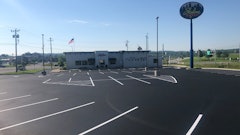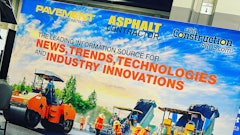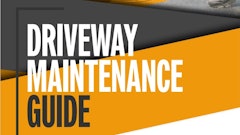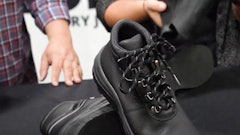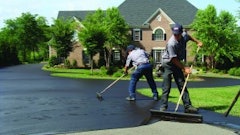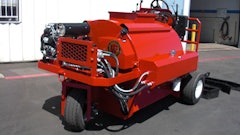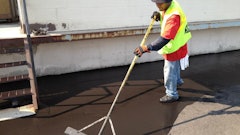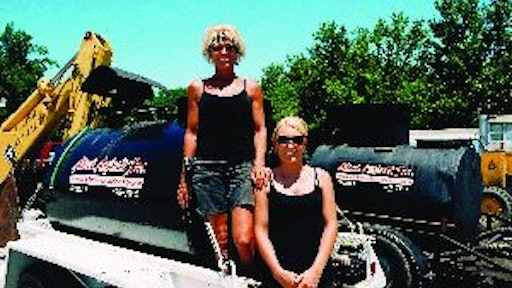
If one of the reasons to sealcoat a pavement is to improve its appearance, then Pam Darst is the right woman for the job. A former vice president of a cosmetology school, Darst, with assistance from her daughter, Nichole, runs Allied Asphalt, Decatur, IL, a sealcoating business that piggybacks on the name of its parent company, Allied Asphalt. And not surprisingly given her background, she insists the finished job look good.
"Our job is to make people's driveways last longer and look better," Darst says. "We take that seriously so we take some extra steps to make sure everything looks great when we're done."
Pam's husband, Kent, has been in the business himself for 39 years. He worked for his father as a chip seal contractor working throughout much of rural central Illinois and started Allied Asphalt almost 11 years ago. Pam, who started in the industry running a pneumatic roller for a chip seal operation, says Allied Asphalt regularly received calls to do sealcoating work but never pursued the market. Instead they looked at sealcoating almost as "a necessary nuisance" service they had to handle to keep customers happy.
But six years ago she took over the sealcoating part of the company and has transformed it into a steady, profitable part of the business. Allied Asphalt's sealcoating operation offers sealcoating, crack repair, and small-scale patching on residential driveways throughout a 45-mile radius from Decatur. Occasionally Allied also sealcoats commercial properties, but that work is minimal and she does it only as it comes up.
"I don't like to stay in one spot too long. We like to keep moving on," says Darst, who recently qualified for her CDL. "That's one reason we don't do too many commercial parking lots. I like the challenge of keeping things neat for the homeowner and every driveway has something different about it that makes it a little more interesting or more of a challenge."
Darst started with a client list of homeowners (and some commercial properties) Allied Asphalt had paved or sealcoated in the past and does no advertising to generate sales. She says almost 100% of sales come from repeat customers, who she pursues aggressively, or referrals. Each year she has added more than 20 new customers, and she currently seals between four and seven driveways a day.
Allied Asphalt has 150 accounts, all of which are on Allied Asphalt's call list, which Darst pursues each year. "I don't wait for them to call me," she says. "If they want to be put on a call list I put them on." They stay on the call list, and Darst calls each homeowner every year. She says a small fraction of her customers either move, cannot afford to maintain their driveways, or just forget.
"We don't want to be too aggressive, so if after the initial phone call, they don't call back, we just leave them off the call list," she says. "Regular customer contact is very important. Good communication with the customer is essential to a successful job," she says. "It's not just business it's good customer relations. I operate this business very much on a personal level."
Allied Asphalt "system"
The season starts in May, weather permitting. Darst starts every work day at 7:30 a.m. getting gear together and shows up on the job by 8:30. "We don't want to show up earlier than that because we're working where people live," she says. They work until between 3:00 and 5:00.
Darst says she's learned a number of things over the years, the two most important being dealing with customers and establishing a system to get the work done. "Basically I had to get my system down pat. At first I was all over the place. I did one job in the north side, then one south. So the first thing I realized was that I needed a system to organize the work. I figured that by organizing it properly I could get more done and would spend less money driving all over, so I started organizing jobs geographically. I figured that out after the first year."
She divided her work into routes or regions, and she calls accounts within a specific area a few days before she's going to be in their area.
"I call them one or two days ahead and tell them I'm going to be in their area and ask them if they want their driveway sealed."
She says 95% of her customers have Allied Asphalt come out and do the sealcoating work. "Most people ask 'Should I have it done every year?' And I just explain it's a judgment call. With the freeze-thaw cycles in this area I just tell them to go take a good look at their driveway and let us know. Some say it doesn't need it, some say they don't have the money, but I'd say it's only about 5% who don't have us do the work."
Darst says that she lays the groundwork for regular sealcoating the first time she sealcoats a driveway, especially if Allied Asphalt has constructed the driveway. "When I start out I tell them how important it is to maintain their driveway. They are putting a lot of money into driveway construction, and they have to protect it to get the most out of it."
She says that when the system is followed it generates a good income in a fairly easy six months.
Darst relies on a Doppler radar during the day and for scheduling but says "storms that just pop up out of no where really can cause a headache." Still she takes the weather into account when scheduling, and she builds flexibility into her schedule to accommodate the weather.
"My system is set up to keep the customer informed and up to date on what's going to happen with their driveway," she says. "That's why I schedule only one or two days out, a week out at the very most. Because if something happens with the weather (or even some other issue) I don't have to be on the phone constantly changing the weekly schedule. If it rains I tell them it will be the next day, and so on. If it rains it will be Thursday and if it rains Thursday it will be Friday. That way I don't have to keep calling them back and rescheduling to change the date."
Allied Asphalt relies on a SealMaster dealer in Champaign, IL, for material, making the 45-minute drive at least once a week. Allied switched from coal tar sealer to asphalt-based sealer in 2006 because SealMaster didn't have coal tar sealer to sell them. In 2007 Allied Asphalt continued to use asphalt-based products because customers haven't had a problem with it, it doesn't burn, and they haven't encountered problems putting it down.
Darst says the only problem she found, a minor one she says, is coal tar sealer is blacker than asphalt sealer, so she uses a latex additive to make the asphalt-based sealer blacker, following the SealMaster mix design formula "religiously." Their 500-gallon sealer tank is homemade, (made by her husband) mounted on a flatbed truck, and uses an agitator powered by an old lawn mower engine. They also have a 500-gallon holding tank.
She repairs cracks using a trowel-grade SealMaster cold-pour crackfiller, but first cracks are cleaned out using a "weed eater" and then blown free of debris using either a Black & Decker backpack blower (small jobs) or Billy Goat walk-behind blower.
She says one of her trademarks is crack repair, adding that it's not unusual to find her on her hands and knees using a putty knife to force crack repair material into a crack. She says where most sealcoaters repair cracks ¼-inch wide or wider, she repairs most cracks she can see.
"Once there's a crack, some damage has already been done, but we try to control it as best we can for them," she says.
Darst says equipment is essential to the business and she maintains it well in the off-season. "The less time spent repairing equipment the better off you are." The same goes for hand tools, such as brooms and brushes, which she places in a water bucket attached to her rig when she's not using them. At the end of the day the brushes are put in a tub until the next day and are easier to hose off with a pressure washer and ready to go for the next job. "If you take care of them properly they'll last all season. And if they last all season you don't have the expense of buying new ones, which means I can keep money in my pocket while keeping my costs down, so I can keep my prices affordable for my customers."
She says she is not afraid to buy new equipment or tools when they're needed. "But I don't want to pay money for equipment just to have something new. These things are not toys; they are workhorses," she says. "I believe in equipment but I don't believe in equipment for equipment's sake. You take care of what you have as best you can, keep it clean, keep it working, and that's all you need. Who needs a $60,000 truck to pull a trailer?"
Holding her prices
Darst says she has not raised her sealcoating price in six years, partly because she works hard to keep costs down.
"I've set a price where I'm comfortable with it and my customers are comfortable with it," she says.
She even re-uses T-stakes that block off driveways to help maintain costs.
"The stakes stay in the driveway and then we even store them in some of the customer's garages, bringing them out the next time we sealcoat their driveway. We just reuse them the next year. You might not think that saves much money, but everything I can save means I don't have to raise my prices and my customers appreciate that."
Darst charges 30% more for sealing new driveways or parking lots. "I know a lot of people bid lower than I do, but I can live with that," she says. "When a customer, new or old, tries someone else because they're cheaper, and when they're done the homeowner can't get them to come back to fix something or can't even get them on the phone, that's fine with me. Because that means I'll get that customer back, and once I get you I'll keep you."
In 2007 daughter Nichole joined full time, though she had been a part-time worker doing sealcoating with Allied over the previous five years. Nichole has a degree in cosmetology, and they think with Pam also being in the cosmetology field it helps them when working on residential driveways.
"We pay a lot of attention on driveways," she says. "There's almost always concrete around the asphalt some place, and homeowners don't want sealer on their concrete." Or on their patio or on the side of their house. One way Allied prevents that is to place mats - used car mats, mud flaps from trucks, or just cardboard - on concrete to prevent tracking of materials.
She says that not only is she particular about the way the work is done, but she and Nichole work hard, not stopping to "chit-chat" with each other or take breaks.
"But we are very personable with each of the homeowners. They're the client, they're the customer, and you need to treat them the way they expect to be treated.
"We're not just two people out there trying to con people?we're people who meet with them, talk with them, answer their questions," Darst says. "We make a first contact with each customer each day before we start their job, assuming they're home. If they're not home we make sure to leave a card in the door or someplace where they will be sure to find it.
"We're professionals," Darst says. "We look professional, we act professional, and we do a neat, professional job."



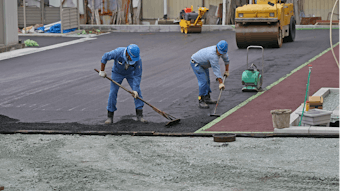


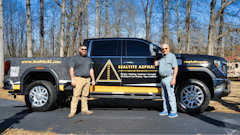
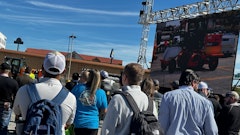
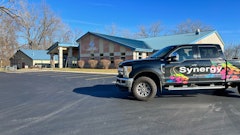
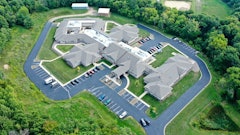
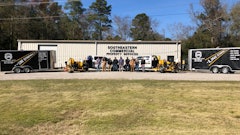


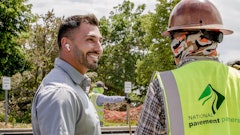

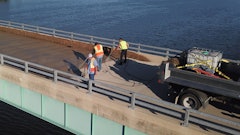



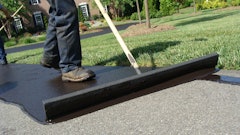
![Screen Shot 2023 01 04 At 5 23 30 Pm[35]](https://img.forconstructionpros.com/files/base/acbm/fcp/image/2023/01/Screen_Shot_2023_01_04_at_5.23.30_PM_35_.63bc42696de27.png?auto=format%2Ccompress&fit=crop&h=135&q=70&w=240)
